8 Reminders That Your Body Is Incredible. As Is.
It can leap and lounge, stretch and sit, be tickled and dance the tango. Let's explore the fantastic features of the frame that's brought you this far.
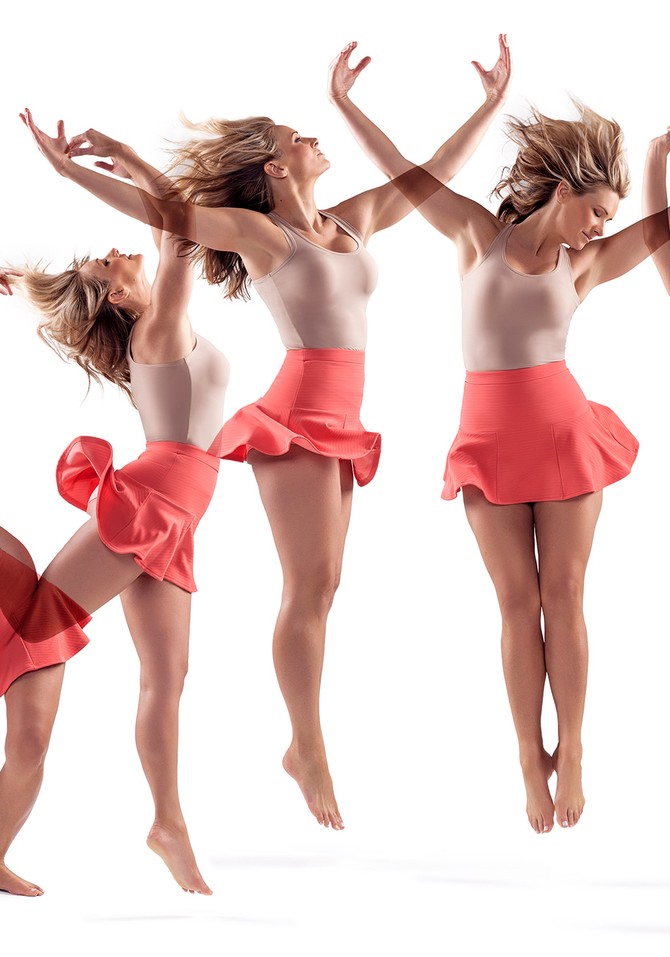
Photo: Henry Leutwyler
Welcome to Your Body
So many of us have never fully settled into our body. We inhabit it as an afterthought, the way we might live in a rented room. And the accommodations are rarely up to our standards: At 13, we wonder whether we'll ever grow breasts; at 30, we lament our swimsuited lumpiness; at 50, we look at pictures of ourselves at 30 and can't believe we ever had it so good.
With all the drama surrounding the way our body looks, we too rarely think of the things it does. Or, for that matter, all the things it is. Our body is the protagonist of our most momentous stories—it lies with our lovers, births our babies, walks us forward into each day. It's the physical manifestation of our emotions. It's also a philanthropist, giving endlessly to meet needs we don't even realize we have. On a hot afternoon, your finely calibrated thermoregulatory system produces sweat to keep you from overheating. As you drink and eat, saliva helps protect your tooth enamel by bathing it in calcium and other minerals. When your bladder is almost full, receptors in its wall send messages to the spinal cord, setting off a chain of signals that will eventually prompt you to take a bathroom break. Every day a host of benevolent mysteries is happening inside you.
And there's good reason for you to ponder them: Being more in tune with your body can help you feel better about it. In one study published last year, researchers at Royal Holloway, University of London, asked female subjects to silently count their heartbeats without feeling their pulse. The ones who judged more accurately—who had more "interoceptive awareness," or a sense of their own physiology—were less likely to think of their body as a mere object and more likely to judge it based on competence than appearance. According to some researchers, women who "self-objectify," who see their physical being only as something to look at and evaluate, are more prone to depression, eating disorders, and sexual dysfunction.
In the spirit of appreciation, we're exploring the glories and challenges of life in a body and celebrating the amazing feats of which our mortal flesh is capable—to name a few: defying gravity, sensing danger, telling stories and carrying around our souls. So read on. And next time you're about to tell yourself how big your butt looks in those pants, try listening to your heart instead.
With all the drama surrounding the way our body looks, we too rarely think of the things it does. Or, for that matter, all the things it is. Our body is the protagonist of our most momentous stories—it lies with our lovers, births our babies, walks us forward into each day. It's the physical manifestation of our emotions. It's also a philanthropist, giving endlessly to meet needs we don't even realize we have. On a hot afternoon, your finely calibrated thermoregulatory system produces sweat to keep you from overheating. As you drink and eat, saliva helps protect your tooth enamel by bathing it in calcium and other minerals. When your bladder is almost full, receptors in its wall send messages to the spinal cord, setting off a chain of signals that will eventually prompt you to take a bathroom break. Every day a host of benevolent mysteries is happening inside you.
And there's good reason for you to ponder them: Being more in tune with your body can help you feel better about it. In one study published last year, researchers at Royal Holloway, University of London, asked female subjects to silently count their heartbeats without feeling their pulse. The ones who judged more accurately—who had more "interoceptive awareness," or a sense of their own physiology—were less likely to think of their body as a mere object and more likely to judge it based on competence than appearance. According to some researchers, women who "self-objectify," who see their physical being only as something to look at and evaluate, are more prone to depression, eating disorders, and sexual dysfunction.
In the spirit of appreciation, we're exploring the glories and challenges of life in a body and celebrating the amazing feats of which our mortal flesh is capable—to name a few: defying gravity, sensing danger, telling stories and carrying around our souls. So read on. And next time you're about to tell yourself how big your butt looks in those pants, try listening to your heart instead.
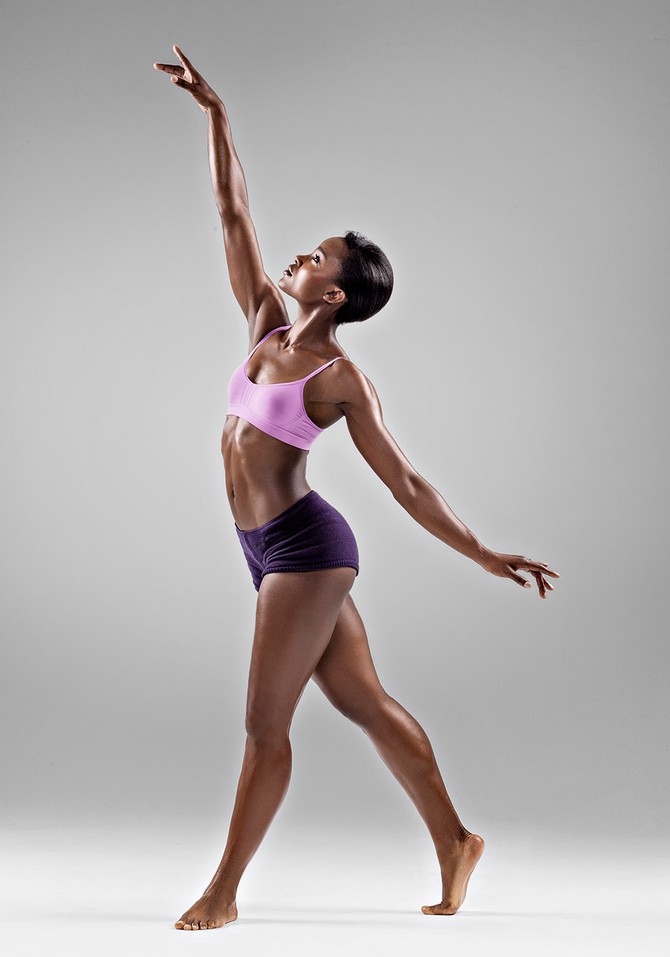
Photo: Henry Leutwyler
A Day in the Life of Your Body
You may not realize it, but in a mere 24 hours, you...
Pound out a Rhythmic Symphony
Your heart thumps around 100,000 times, pumping approximately 2,000 gallons of blood.
Travel Astonishing Lengths
Your blood flows about 12,000 miles (roughly the distance from Paris to Auckland, New Zealand) through more than 60,000 miles of blood vessels.
Compose an Epic Tale
You speak an average of 16,000 words, about one-sixth the number in a typical novel.
Inspire and Respire
You can take between 17,280 and 23,040 breaths.
Pound out a Rhythmic Symphony
Your heart thumps around 100,000 times, pumping approximately 2,000 gallons of blood.
Travel Astonishing Lengths
Your blood flows about 12,000 miles (roughly the distance from Paris to Auckland, New Zealand) through more than 60,000 miles of blood vessels.
Compose an Epic Tale
You speak an average of 16,000 words, about one-sixth the number in a typical novel.
Inspire and Respire
You can take between 17,280 and 23,040 breaths.
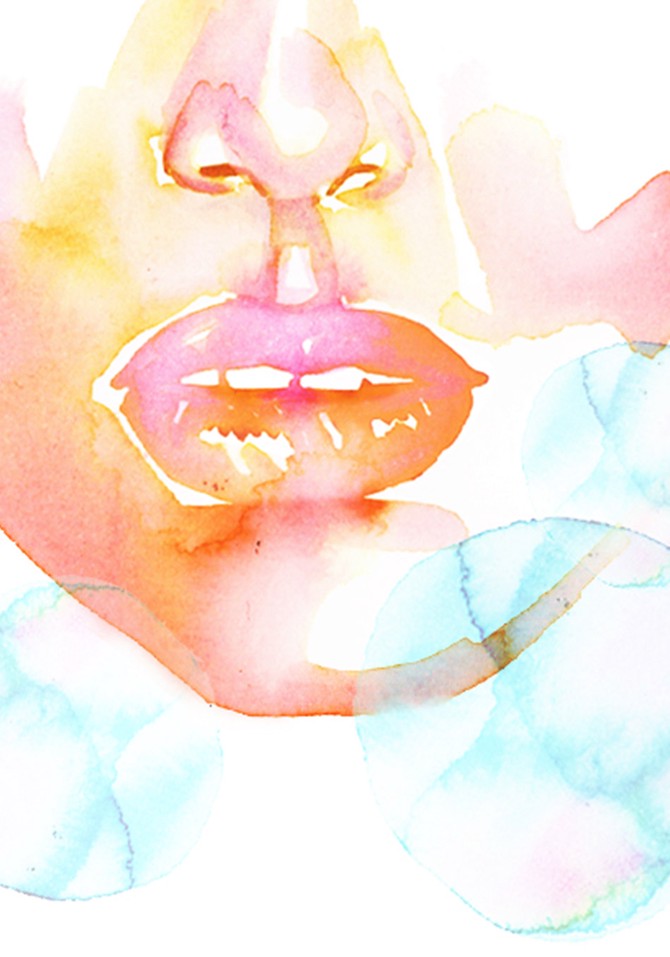
Illustration: Samantha Hahn/CWC-i.com
Open Wide
Naomi Barr peeks inside the most versatile place on your face.
The mouth—a marvel of Wonka-factory proportions, a bonanza of the fascinating and fantastical. How many other body parts can put chewing, tasting, slurping, enunciating, whistling, singing and kissing on their résumés?
The nose, eyes and ears all participate in the symphony of the senses, but the mouth is the most multifaceted player. Its front gates, the lips, are a system of capillaries, glands, muscles and nerves encapsulated by come-hither flesh. We press them together to say our p's and b's—essential for calling someone "pretty" or "baby"—and round them for o's and u's, as in "Hello, you." When our lips kiss another pair, our nerve endings are set aflame, triggering a chemical cascade that turns us on.
Just past the lips' entrance is the great hall of the whole operation, the oral cavity, home of the incredible tongue. There you'll find thousands of taste buds, as well as the tongue's eight muscles—including the prehistoric-sounding styloglossus and hyoglossus—which enable it to lick, lap and transfer food to the elevator shaft of the esophagus. And it talks! The tongue moves forward, back, up, down and sideways; whirls itself around; presses itself against the teeth or the hard and soft palates. About those: The soft palate, made of muscle and tissue, rises when we yawn and laugh; the hard palate, made of bone, anchors our upper teeth and can serve as the tongue's backstop when we belt out the score to Oklahoma!
And that dangly guy in the back? The uvula is a sophisticated structure that scientists only partially understand. It secretes saliva, making your throat a moister, happier place and is thought to differentiate human beings from other animals—because nobody in the mammalian world has one like ours. (Think of the uvula as our very own Everlasting Gobstopper.)
The mouth gives us so much—the sensations of sweet, sour, salty, bitter and umami. It can recite Shakespeare, quote The Simpsons, coo to babies, sing "Happy Birthday." It can tell someone off, then kiss and make up. The mouth is a magical site of poetry, passion and Pop-Tarts—a veritable golden ticket to life's delicious experiences.
The mouth—a marvel of Wonka-factory proportions, a bonanza of the fascinating and fantastical. How many other body parts can put chewing, tasting, slurping, enunciating, whistling, singing and kissing on their résumés?
The nose, eyes and ears all participate in the symphony of the senses, but the mouth is the most multifaceted player. Its front gates, the lips, are a system of capillaries, glands, muscles and nerves encapsulated by come-hither flesh. We press them together to say our p's and b's—essential for calling someone "pretty" or "baby"—and round them for o's and u's, as in "Hello, you." When our lips kiss another pair, our nerve endings are set aflame, triggering a chemical cascade that turns us on.
Just past the lips' entrance is the great hall of the whole operation, the oral cavity, home of the incredible tongue. There you'll find thousands of taste buds, as well as the tongue's eight muscles—including the prehistoric-sounding styloglossus and hyoglossus—which enable it to lick, lap and transfer food to the elevator shaft of the esophagus. And it talks! The tongue moves forward, back, up, down and sideways; whirls itself around; presses itself against the teeth or the hard and soft palates. About those: The soft palate, made of muscle and tissue, rises when we yawn and laugh; the hard palate, made of bone, anchors our upper teeth and can serve as the tongue's backstop when we belt out the score to Oklahoma!
And that dangly guy in the back? The uvula is a sophisticated structure that scientists only partially understand. It secretes saliva, making your throat a moister, happier place and is thought to differentiate human beings from other animals—because nobody in the mammalian world has one like ours. (Think of the uvula as our very own Everlasting Gobstopper.)
The mouth gives us so much—the sensations of sweet, sour, salty, bitter and umami. It can recite Shakespeare, quote The Simpsons, coo to babies, sing "Happy Birthday." It can tell someone off, then kiss and make up. The mouth is a magical site of poetry, passion and Pop-Tarts—a veritable golden ticket to life's delicious experiences.
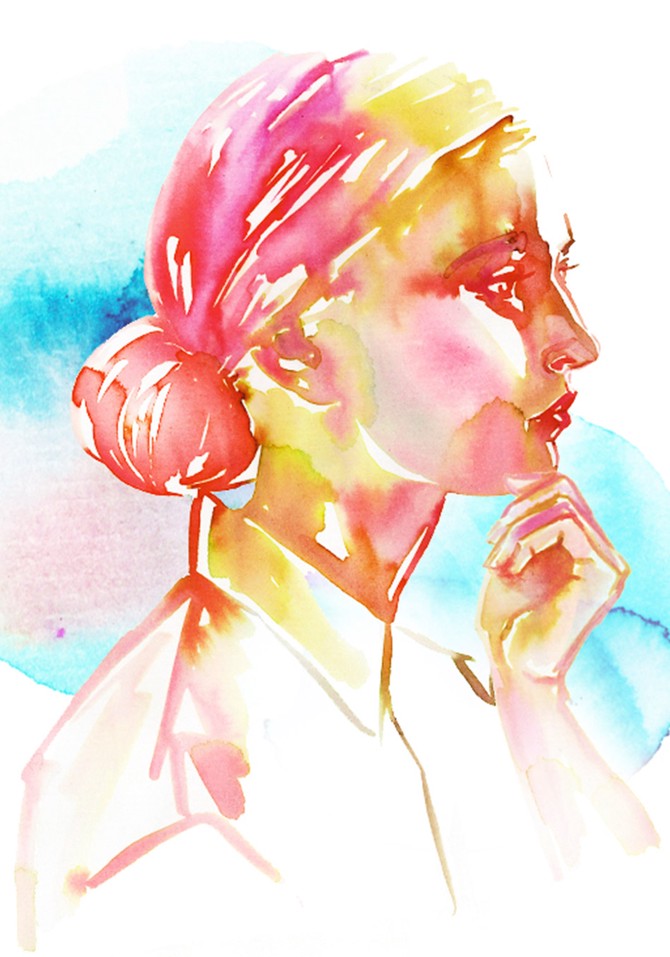
Illustration: Samantha Hahn/CWC-i.com
Music to His Ears
After two blows to the head, 17-year-old Lachlan Connors is now a virtuoso.
My mom had been trying to get me to learn piano for a while, but I could barely play simple songs like "Für Elise." Then one morning in 2008—a couple of months after I was hospitalized for seizures I'd had after two sports-related concussions—I sat down at the piano and from nowhere played "Moonlight Sonata." By ear. It was baffling. I just went through each note, deciding what sounded right. Now I can figure out some songs in only five or ten minutes and play14 instruments by ear:
Piano
Guitar
Mandolin
Ukulele
Banjo
Accordion
Karimba
Bass
Bagpipes
Harmonica
Button box
Melodica
Organ
Appalachian
Dulcimer
My doctors still aren't exactly sure how this happened. I had symptoms that resembled the epilepsy that some researchers think Chopin had. When I hear a song for the first time, I think, "Hmm, that's an interesting sound." Then I develop an intense hunger to re-create it. I feel a connection to each instrument, like my mind syncs with the sounds it makes.
Keep Reading: 4 things you never knew about the head
My mom had been trying to get me to learn piano for a while, but I could barely play simple songs like "Für Elise." Then one morning in 2008—a couple of months after I was hospitalized for seizures I'd had after two sports-related concussions—I sat down at the piano and from nowhere played "Moonlight Sonata." By ear. It was baffling. I just went through each note, deciding what sounded right. Now I can figure out some songs in only five or ten minutes and play14 instruments by ear:
Piano
Guitar
Mandolin
Ukulele
Banjo
Accordion
Karimba
Bass
Bagpipes
Harmonica
Button box
Melodica
Organ
Appalachian
Dulcimer
My doctors still aren't exactly sure how this happened. I had symptoms that resembled the epilepsy that some researchers think Chopin had. When I hear a song for the first time, I think, "Hmm, that's an interesting sound." Then I develop an intense hunger to re-create it. I feel a connection to each instrument, like my mind syncs with the sounds it makes.
Keep Reading: 4 things you never knew about the head
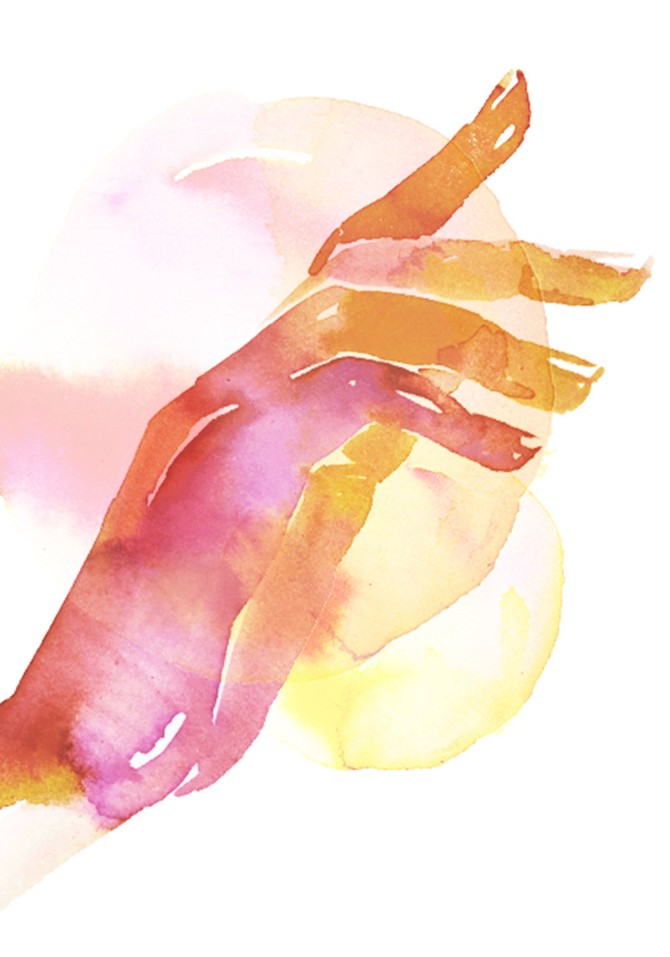
Illustration: Samantha Hahn/CWC-1.com
Magic Touch
Susanna Sonnenberg on all we hold dear.
How well you know your hands, how they sew, stir, snap; how they grab, pry out knots, press piano keys. You have studied the topography of your knuckles, the finger pads roughed by garden dirt. Your hands tell the story of your life.
Your friend's hand in yours, you dab her nails with polish, hold her fingers steady. You remember when you met, the kickball-game high five, the spark of kinship.
Seventh grade, and you sit beside your crush in the movie theater. His hand is clumsy on the armrest, and he lets his fingers slip over, dangle to reach your hand in your lap. He strokes a centimeter of tender skin inside your palm, over and over, with his fingertip. You stay like that until the movie ends, dazed by first arousal.
Your lover's hand is on your belly, and you lift it to your mouth because he likes it when you do. Your fingers are laced with his everywhere you go, even in summer when you're both sweating, because you don't want to undo from each other.
You clutch your toddler's hand to keep her close in the store. When she was just hours old, her fingers curled like tiny feathers around your thumb. In the numberless repetitions of daily care, you've held her hand to know her—by her pulse, her squirm, and the primal rightness of your fit.
You have your hand on your father's as he dies. Your expert, industrious hand, a woman's, now still, just holding, being strong. You remember: You are 5, and your father's hand gloves yours as you cross a busy street on a winter morning. Your hand disappears in his, and you, all trust, prize your own smallness as he warms you and guides you forward, onward.
How well you know your hands, how they sew, stir, snap; how they grab, pry out knots, press piano keys. You have studied the topography of your knuckles, the finger pads roughed by garden dirt. Your hands tell the story of your life.
Your friend's hand in yours, you dab her nails with polish, hold her fingers steady. You remember when you met, the kickball-game high five, the spark of kinship.
Seventh grade, and you sit beside your crush in the movie theater. His hand is clumsy on the armrest, and he lets his fingers slip over, dangle to reach your hand in your lap. He strokes a centimeter of tender skin inside your palm, over and over, with his fingertip. You stay like that until the movie ends, dazed by first arousal.
Your lover's hand is on your belly, and you lift it to your mouth because he likes it when you do. Your fingers are laced with his everywhere you go, even in summer when you're both sweating, because you don't want to undo from each other.
You clutch your toddler's hand to keep her close in the store. When she was just hours old, her fingers curled like tiny feathers around your thumb. In the numberless repetitions of daily care, you've held her hand to know her—by her pulse, her squirm, and the primal rightness of your fit.
You have your hand on your father's as he dies. Your expert, industrious hand, a woman's, now still, just holding, being strong. You remember: You are 5, and your father's hand gloves yours as you cross a busy street on a winter morning. Your hand disappears in his, and you, all trust, prize your own smallness as he warms you and guides you forward, onward.
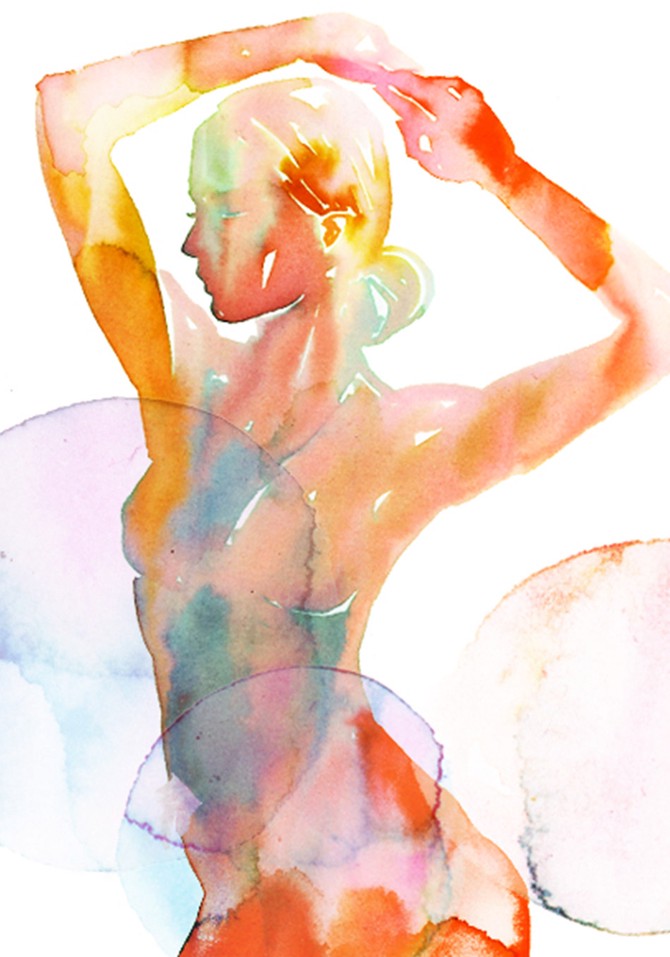
Illustration: Samantha Hahn/CWC-1.com
A Gutsy Move
When she mustered her courage, Elizabeth Graver finally found inner peace.
I was 30 years old, traveling in Turkey. After a day spent at the cave churches of Cappadocia, I sat at a village restaurant. My dinner was mild: lemony chicken, stuffed grape leaves. But midmeal, I was overcome by a knifing pain in my abdomen. In the WC, I curled into myself. Empty, I commanded my belly, but it refused. I was sick for the rest of the trip—and, to varying degrees, have been for the past 19 years.
An intense crush, great grief or sudden joy—I've always felt them most acutely in the neuron-packed corridor that some scientists call the second brain. The gut is a key site of interaction between mind and body; it's also a complex ecosystem that requires an exquisite microbial balance, a fabled seat of intuition and a bit of an enigma. My illness could have been triggered by a virus I'd picked up on my travels or just some long-dormant trouble; the doctors didn't know.
I love to work from instinct—dropping down inside a novel I'm writing, hiking without a map. But after the trip to Turkey I feared my insides were not up for adventure. Though I yearned to see far-flung places, this gut I am supposed to follow was telling me, Stop! Careful! I usually got only as close as books and movies could take me.
Then, three years ago, I was invited to teach a course in India. I said yes at once, before the panic could set in. It would be me, ten American students, my family. My gut. I surfed the Web, fretted. Finally, armed with probiotics and antibiotics, I ventured forth. Carefully. "Wash your hands," I barked at my charges. "Peel the fruit yourself!"
And yet. My anxieties shrank against the backdrop of India, a place of chaos and struggle, beauty and improvisation. There was so much to see, smell, hear—taste. I waded into the Ganges and let a priest splash water on my face. I opened a cunning paper packet on the train and took a bite of something sweet I could not name. I got sick, but not terribly; then I got better. The gut may be fragile, but it is also resilient, capable of embracing newness, withstanding peril, finding nourishment in the strangeness of the journey. My first and second brain were in sync, alive, crossing worlds.
Keep Reading: 4 things you never knew about your gut
I was 30 years old, traveling in Turkey. After a day spent at the cave churches of Cappadocia, I sat at a village restaurant. My dinner was mild: lemony chicken, stuffed grape leaves. But midmeal, I was overcome by a knifing pain in my abdomen. In the WC, I curled into myself. Empty, I commanded my belly, but it refused. I was sick for the rest of the trip—and, to varying degrees, have been for the past 19 years.
An intense crush, great grief or sudden joy—I've always felt them most acutely in the neuron-packed corridor that some scientists call the second brain. The gut is a key site of interaction between mind and body; it's also a complex ecosystem that requires an exquisite microbial balance, a fabled seat of intuition and a bit of an enigma. My illness could have been triggered by a virus I'd picked up on my travels or just some long-dormant trouble; the doctors didn't know.
I love to work from instinct—dropping down inside a novel I'm writing, hiking without a map. But after the trip to Turkey I feared my insides were not up for adventure. Though I yearned to see far-flung places, this gut I am supposed to follow was telling me, Stop! Careful! I usually got only as close as books and movies could take me.
Then, three years ago, I was invited to teach a course in India. I said yes at once, before the panic could set in. It would be me, ten American students, my family. My gut. I surfed the Web, fretted. Finally, armed with probiotics and antibiotics, I ventured forth. Carefully. "Wash your hands," I barked at my charges. "Peel the fruit yourself!"
And yet. My anxieties shrank against the backdrop of India, a place of chaos and struggle, beauty and improvisation. There was so much to see, smell, hear—taste. I waded into the Ganges and let a priest splash water on my face. I opened a cunning paper packet on the train and took a bite of something sweet I could not name. I got sick, but not terribly; then I got better. The gut may be fragile, but it is also resilient, capable of embracing newness, withstanding peril, finding nourishment in the strangeness of the journey. My first and second brain were in sync, alive, crossing worlds.
Keep Reading: 4 things you never knew about your gut
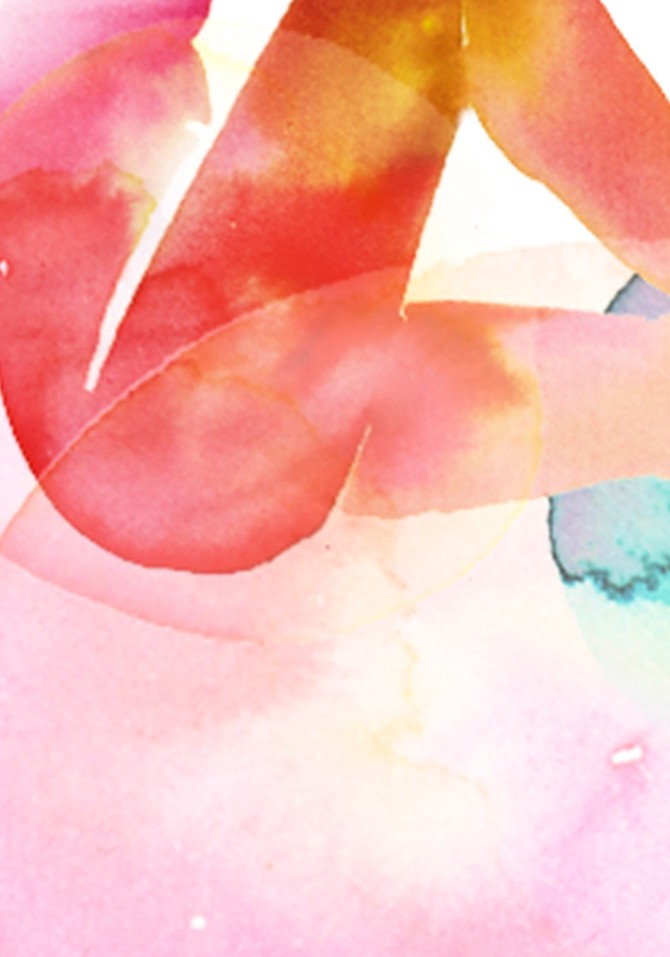
Illustration: Samantha Hahn/CWC-i.com
A Fascinating Mystery
Jessica Winter on the female body's most misunderstood region.
The human vagina is both presence and absence, an open space closed in by complex walls: a layer of cells followed by layers of connective tissue and muscle that can expand accordion-like to accommodate (for instance) an infant's head. In terms of structural engineering, the vagina ranks as the biological equivalent of the Brooklyn Bridge. And yet it tends to inspire more embarrassment than awe.
We feel both uneasy about and intrigued by what we do not understand, and misunderstanding the vagina may start with simple logistics: The vagina is hidden, unless you're a contortionist (or have a compact mirror). There is also confusion over terminology. The word vagina is often taken as an umbrella term describing the genitals, including the clitoris and labia—both of which are under the jurisdiction of the vulva, not the vagina. The vagina is, however, home to the elusive G-spot: the promised land of the vaginal orgasm, said to be perched just up the vagina's front wall. Like Shangri-La or Brigadoon, the G-spot is a place so magical that some question its existence and, assuming it does exist, whether it's simply part of the clitoris or if it constitutes its own glamorous principality—the Monaco of a lady parts United Nations.
We also seem to be confused about the vagina's cleanliness or supposed lack thereof. A healthy vagina, as science writer Natalie Angier explains in Woman: An Intimate Geography, is full of the best kind of germs: "lactobacilli, the same bacteria found in yogurt." Lactobacilli "generate lactic acid and hydrogen peroxide," Angier writes, which help "prevent colonization by less benign microbes." This is why my eighth-grade health teacher described the vagina as "a self-cleaning oven." Not only does the vagina keep a tidy house, but it's also custom built for monogamy: As Angier points out, exposure to the sperm of multiple partners is more likely to throw its pH balance out of whack than unprotected sex with one mate.
Perhaps if we all were more familiar with the vagina's structure and talents, the word wouldn't inspire a culture-wide cringe. Then again, there's satisfaction in a well-kept secret—and if the heroic vagina never gets her due, at least those of us in the know can appreciate just how remarkable she really is.
The human vagina is both presence and absence, an open space closed in by complex walls: a layer of cells followed by layers of connective tissue and muscle that can expand accordion-like to accommodate (for instance) an infant's head. In terms of structural engineering, the vagina ranks as the biological equivalent of the Brooklyn Bridge. And yet it tends to inspire more embarrassment than awe.
We feel both uneasy about and intrigued by what we do not understand, and misunderstanding the vagina may start with simple logistics: The vagina is hidden, unless you're a contortionist (or have a compact mirror). There is also confusion over terminology. The word vagina is often taken as an umbrella term describing the genitals, including the clitoris and labia—both of which are under the jurisdiction of the vulva, not the vagina. The vagina is, however, home to the elusive G-spot: the promised land of the vaginal orgasm, said to be perched just up the vagina's front wall. Like Shangri-La or Brigadoon, the G-spot is a place so magical that some question its existence and, assuming it does exist, whether it's simply part of the clitoris or if it constitutes its own glamorous principality—the Monaco of a lady parts United Nations.
We also seem to be confused about the vagina's cleanliness or supposed lack thereof. A healthy vagina, as science writer Natalie Angier explains in Woman: An Intimate Geography, is full of the best kind of germs: "lactobacilli, the same bacteria found in yogurt." Lactobacilli "generate lactic acid and hydrogen peroxide," Angier writes, which help "prevent colonization by less benign microbes." This is why my eighth-grade health teacher described the vagina as "a self-cleaning oven." Not only does the vagina keep a tidy house, but it's also custom built for monogamy: As Angier points out, exposure to the sperm of multiple partners is more likely to throw its pH balance out of whack than unprotected sex with one mate.
Perhaps if we all were more familiar with the vagina's structure and talents, the word wouldn't inspire a culture-wide cringe. Then again, there's satisfaction in a well-kept secret—and if the heroic vagina never gets her due, at least those of us in the know can appreciate just how remarkable she really is.
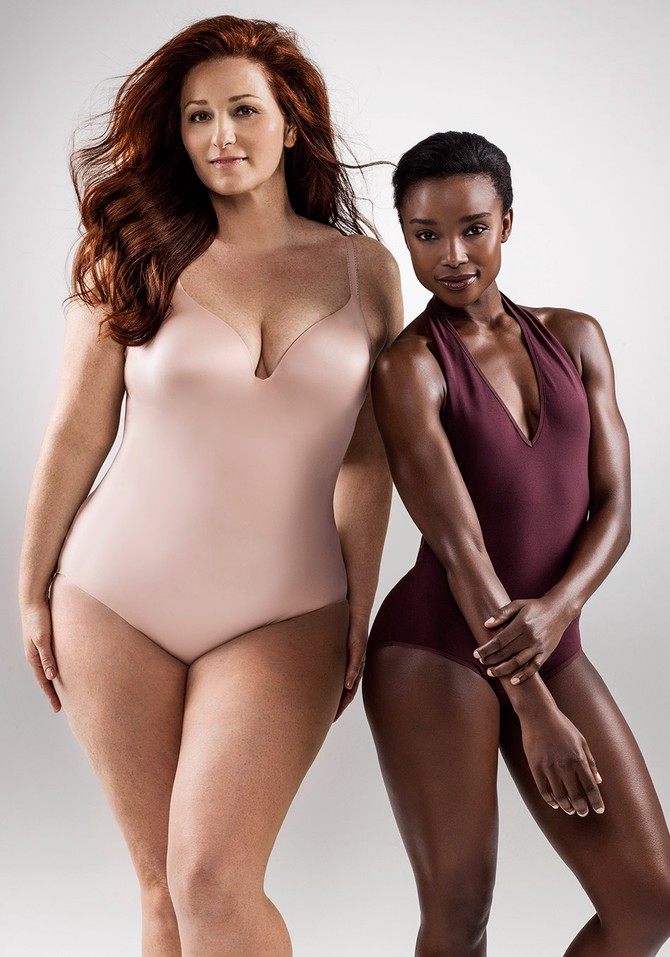
Photo: Henry Leutwyler
Shaping Up
Feeling more confident already? You aren't the only one. Here, a few triumphs for better body image around the world.
1. A Brazilian fast food pasta chain tries a unique payment system for International Women's Day: Clerks ask women if they feel beautiful and give a free meal to anyone who says yes.
2. Coming soon: a new and improved Barbie. The Lammily doll wears little makeup and, according to its creator, has the proportions of the average 19-year-old American woman.
3. Pictograms on a pair of restroom entrances at Jacksonville International Airport feature women (and men) of all shapes and sizes. (Too bad the ladies still wear triangular skirts.)
4. A YouTube star is born. Whitney Thore, a North Carolina radio producer, has three million views for her "A Fat Girl Dancing" videos, which she produces to promote body confidence.
5. David's Bridal stores use dress forms with less-than-perky breasts and even a little back fat when designing some of their gowns. Now that's a wedding gift.
"When you bring your body to me, you might be self-conscious about how something is jigglier or hairier than you want it to be, but that's not what I'm going to notice. (For the record, I'm not judging your butt when I'm studying you; I'm trying to figure out if your hip rotators are tight.) When you're touching it, the body doesn't lie. It tells me everything: whether it's working right, moving the way it should. And it mostly does, which is kind of amazing. The body isn't designed to be ornamental; it's designed to be useful. Just getting out of bed in the morning, walking around and loving who you love—your body makes it all possible. But is yours normal? I'll tell you: It is. Every body is unique—but then, oddly, they're all pretty much the same. So cultivate an appreciation of your body's grace and coordination and all the things it does right. That's what I'm doing." —As told to Catherine Newman
Keep Reading: 6 ways to put your best self forward—without saying a word
1. A Brazilian fast food pasta chain tries a unique payment system for International Women's Day: Clerks ask women if they feel beautiful and give a free meal to anyone who says yes.
2. Coming soon: a new and improved Barbie. The Lammily doll wears little makeup and, according to its creator, has the proportions of the average 19-year-old American woman.
3. Pictograms on a pair of restroom entrances at Jacksonville International Airport feature women (and men) of all shapes and sizes. (Too bad the ladies still wear triangular skirts.)
4. A YouTube star is born. Whitney Thore, a North Carolina radio producer, has three million views for her "A Fat Girl Dancing" videos, which she produces to promote body confidence.
5. David's Bridal stores use dress forms with less-than-perky breasts and even a little back fat when designing some of their gowns. Now that's a wedding gift.
The Naked Truth
Massage therapist Michael Millner, PhD, has seen hundreds of bodies, and he knows yours is perfect."When you bring your body to me, you might be self-conscious about how something is jigglier or hairier than you want it to be, but that's not what I'm going to notice. (For the record, I'm not judging your butt when I'm studying you; I'm trying to figure out if your hip rotators are tight.) When you're touching it, the body doesn't lie. It tells me everything: whether it's working right, moving the way it should. And it mostly does, which is kind of amazing. The body isn't designed to be ornamental; it's designed to be useful. Just getting out of bed in the morning, walking around and loving who you love—your body makes it all possible. But is yours normal? I'll tell you: It is. Every body is unique—but then, oddly, they're all pretty much the same. So cultivate an appreciation of your body's grace and coordination and all the things it does right. That's what I'm doing." —As told to Catherine Newman
Keep Reading: 6 ways to put your best self forward—without saying a word
From the May 2014 issue of O, The Oprah Magazine

